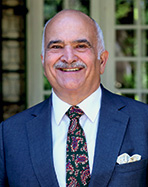 HRH Prince El Hassan bin Talal is Founder and Chairman of the West Asia-North Africa Institute. You may follow him on Twitter @Majliselhassan.
HRH Prince El Hassan bin Talal is Founder and Chairman of the West Asia-North Africa Institute. You may follow him on Twitter @Majliselhassan.
THE PEOPLE of West Asia-North Africa (WANA) face an unprecedented set of interconnected challenges. These include water scarcity, energy shortages, protracted conflict, and unprecedented human displacement. These issues transcend national borders by their very nature. In the absence of a regional framework for responding to these events, chronic development problems have been aggravated. The consequences for social cohesion, equitable resource-sharing, and human dignity are clear, leaving the region’s people at a complex crossroads of resource and institutional deficits, incomplete transitions, and aggravating polarization.
This state of affairs presents not only challenges but also opportunities. Resilient approaches will require the region to harness its carrying capacity, as well as shift the way policymakers think about crises, stresses, and shocks. Adopting a toolbox of resilience is the way that WANA will best be able to confront socio-economic stagnation, violent extremism, climate change, and ecological decline.
Coping with unpredicted change is a daunting task, imbued with challenge. Zero change equates to stagnation, while at the same time, too much change without corresponding adaptation and innovation, can destroy social and ecological systems. It is this latter type of destruction that WANA is facing today.
As a socio-ecological system, WANA is not sufficiently resilient to seize the opportunities embedded in every crisis. As such, it risks becoming a victim of change. We need states, societies, and institutions that expect change, rather than shield from it. We must enable people and institutions to capitalize on unexpected events: a new and more inclusive architecture that is designed to wage peace and further a security agenda in which humans are the referent objects of security.
The War Against Humanity
Certain highly respected intellectuals have written that the ‘Arab Awakening’ epitomizes an opportunity missed when winds of change began blowing in WANA. Quickly, demands were made for democratization, liberalized markets, and fundamental freedoms.







